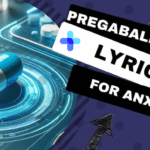
Introduction:-
Pregabalin withdrawal symptoms can occur when the medication is stopped suddenly or reduced too quickly. Pregabalin, often prescribed for nerve pain, epilepsy, and anxiety disorders, is generally effective and safe when taken as directed. However, because it affects the central nervous system, abrupt discontinuation may trigger uncomfortable or even serious withdrawal effects. Understanding these symptoms and how to manage them is crucial for anyone prescribed pregabalin.
Why Does Pregabalin Withdrawal Happen?
Pregabalin works by calming overactive nerve signals in the brain and spinal cord. Over time, the body adapts to its presence. If the drug is suddenly removed, the nervous system may become overstimulated, leading to withdrawal symptoms. This is more likely to occur if pregabalin has been used for a long period, at high doses, or without medical supervision.
Common Pregabalin Withdrawal Symptoms:-
The severity and duration of withdrawal can vary depending on dosage and individual health. Some of the most reported pregabalin withdrawal symptoms include:
1. Anxiety and Irritability – Many people experience heightened nervousness or mood swings when coming off the drug.
2. Insomnia – Difficulty falling or staying asleep is one of the most common withdrawal effects.
3. Nausea and Gastrointestinal Upset – Stomach discomfort, nausea, or diarrhea may occur.
4. Headaches – Withdrawal can trigger persistent or severe headaches.
5. Dizziness – Lightheadedness and poor coordination are frequently reported.
6. Sweating and Shaking – Increased sweating and tremors are possible during withdrawal.
7. Depression and Low Mood – Some individuals may experience emotional changes or worsened mental health symptoms.
8. Seizures (in rare cases) – Particularly in patients who were prescribed pregabalin in anxiety sudden discontinuation can increase seizure risk.
How Long Do Pregabalin Withdrawal Symptoms Last?
The timeline for withdrawal differs from person to person. Symptoms typically begin within 24 to 48 hours after stopping pregabalin and may last from a few days to several weeks. In cases of long-term or high-dose use, symptoms can persist longer, making a gradual reduction plan essential.
Managing Pregabalin Withdrawal Safely:-
To reduce the risk of severe pregabalin withdrawal symptoms, medical guidance is necessary. Helpful strategies include:
Tapering the dose – Doctors usually recommend lowering pregabalin gradually rather than stopping abruptly.
Monitoring mental health:– Regular check-ins with a healthcare provider can help manage anxiety, depression, or insomnia.
Lifestyle support:– Maintaining a healthy diet, staying hydrated, and practicing relaxation techniques may ease symptoms.
Professional supervision:– In some cases, hospitalization or close medical monitoring may be required, especially for individuals with epilepsy or severe dependence.
Final Thoughts:-
Experiencing pregabalin withdrawal symptoms can be challenging, but they are manageable with the right medical support. If you are considering stopping pregabalin, never do so on your own. Consult your doctor to create a safe tapering plan that minimizes discomfort and protects your health.

 Previous Post
Previous Post Next Post
Next Post